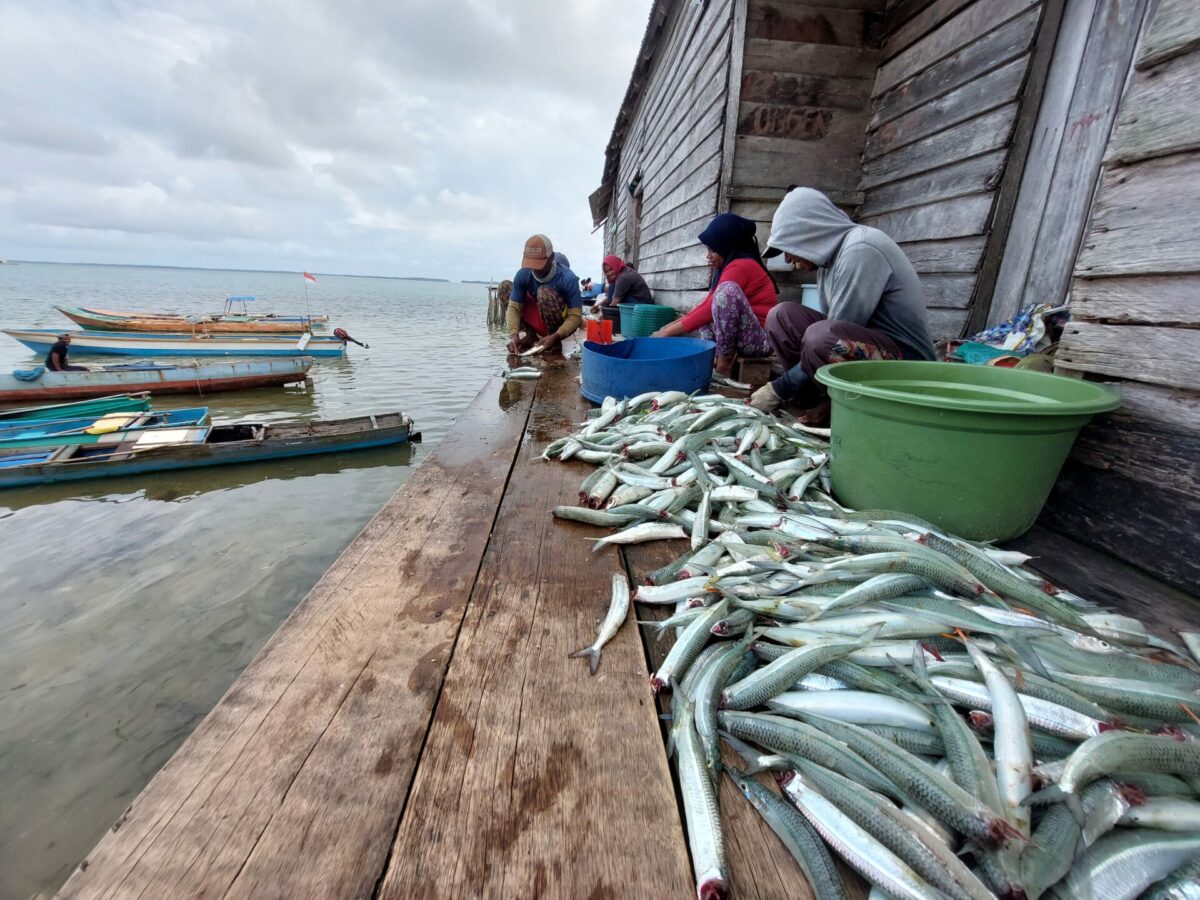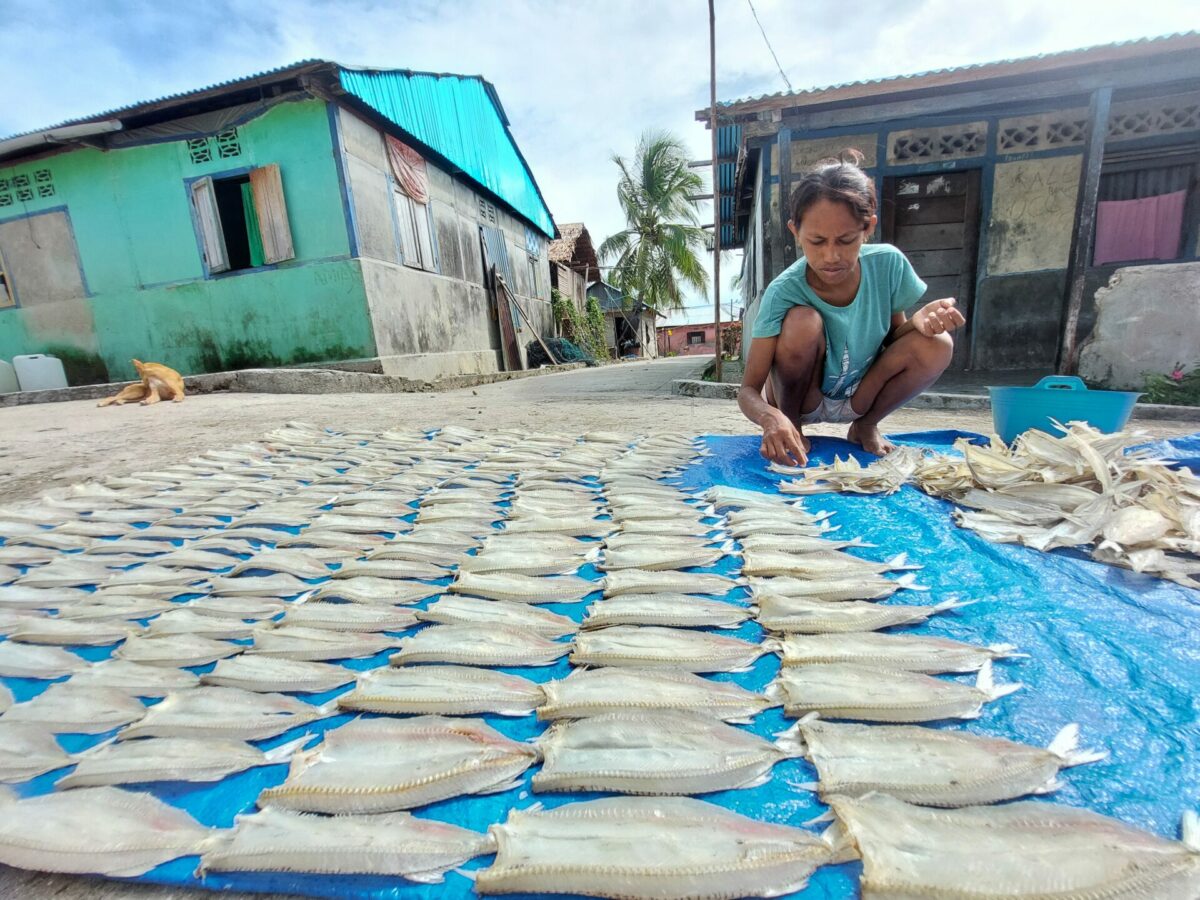Tucked away in the Aru Archipelago in Indonesia’s Maluku district, Apara Village is home to captivating traditions and a way of life unique to this remote corner of the world. Located on Workai Island, the village is blessed with access to the Southeastern Aru Conservation Area and the surrounding sea. The journey to get here is not an easy one, with limited access and few transportation options available. But despite these challenges, the community of Apara Village have been able to survive and thrive by relying on fishing and sea-related activities for their livelihoods.
The Art of Fishing
Apara Village is home to skilled fisherfolk who employ a variety of techniques, showcasing their profound understanding and connection to the sea. From circular nets to longline fishing and diving for pearl shells and sea cucumbers, their expertise is diverse and varied. Their primary focus lies in capturing the halfbeak or ‘balobo’ fish (Hemiramphus brasiliensis), which is abundant in the shallow waters and coral reefs surrounding the village. This prized catch holds a special place within the community.

Once the balobo are caught, the fisherfolk of Apara Village demonstrate their skill in transforming them into salted fish, a delicacy highly regarded locally and further afield. They also sell live and dead fish to nearby companies, thereby expanding their reach and diversifying their sources of income. The production of salted balobo provides a dependable alternative for the community, ensuring they have the funds to meet their daily needs.
Developing raw balobo into salted fish is a labour-intensive process, primarily managed by the women of Apara Village. After returning from their one-day fishing operations, the fisherfolk meticulously clean the fish, carefully removing the internal organs and preserving only the body. The women then mix the cleaned fish with coarse salt, allowing it to rest overnight before brushing and drying it under the sun. This traditional method, influenced by weather conditions, typically takes at least two days in favourable weather and slightly longer during rainy periods.
Market Opportunities and Challenges

While Apara Village boasts a rich tradition of salted balobo fish production, the marketing network remains limited, with sales generally not reaching beyond the district level. However, there are high hopes that the local government will play a role in improving producer capacity, enhancing product quality and opening up opportunities for wider networking in the market. These efforts would not only benefit the community of Apara Village, but also reveal their wonders to a broader audience.
Apara Village’s dedication to the art of salted balobo fish is a testament to the resilience and ingenuity of its community. In the face of limited access and challenging weather conditions, the villagers of Apara persist in their pursuit of this unique craft, not only sustaining their livelihoods but also preserving their cultural heritage. As the local government works towards expanding opportunities and creating a wider market network, Apara Village stands poised to share its enchanting traditions and delectable salted balobo fish with the world, inviting others to discover the hidden gem in the Aru Archipelago.
By Iriansyah and Stella Yovita Arya Puteri


